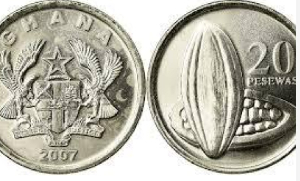“Ghana, In Search of Illusive Positive Change: A Performance Review of the First Kufuor Administration.”
Publisher: Xlibris Corporation (335 pages)By Yaw Adu-Asare
Reviewed by: K. Appiah Kubi
BLOOMFIELD, CT.; March 7, 2007
John Agyekum Kufuor and the New Patriotic Party, NPP, won power to rule Ghana, starting in 2001, after the country had endured 20 years of political doldrums resulting in massive brain drain and hosts of querulous social discontentment. Workers screamed for pay increases and better conditions of service to meet skyrocketing cost of living. The police force was sinking gradually into the abyss of despair, and the armed forces had turned into an ominous and disastrous breed of new political stooges hiding behind the political curtain like the ghost of Julius Caesar.
During the general elections campaign in 2000, Kufuor and his party leaders promised Ghanaians an “Agenda for Positive Change,” the title of NPP’s Manifesto. Ghanaians believed and handed political power to Kufuor and his men, with a mandate to rule for four years. Hence, it is in order for Yaw Adu-Asare to review the performance of the Kufuor administration after four years in office. Did the Kufuor administration execute policies consistent with what the NPP 2000 Manifesto promised?
The primary interest of the author for writing “Ghana, In Search of Illusive Positive Change: A Performance Review of the First Kufuor Administration was to tell the story of Ghana at a critical political juncture of the country, hoping to add to the building blocks of its national history. Central to that critical juncture would remain the fact that the NPP won political power peacefully through the ballot box. That historical phenomenon was a departure for Ghana, where previous change of civilian governments had been through military takeovers.”
The book has six distinctive clear chapters, well written and in-depth. The chapters cover subject areas such the private sector; provision of social services; the agricultural sector and good governance.
Yaw Adu-Asare, a brilliant journalist, explored the most sensitive areas of social reality that most Ghanaians would be happy to read or applaud the author for his bravery and candidness. He posed questions such as, “Did the Kufuor administration’s public policy actions enhance or diminish chances for private sector development? Did the policies executed by the administration improve or retard development of infrastructure in Ghana? Did the policies implemented by the administration expand or contract access to provision of quality education and healthcare services? Did policies executed by the Kufuor administration help or harm the chances for modernizing agriculture in harmony with rural development in Ghana? Did policy actions of the Kufuor administration improve or impair governance in Ghana during its first term in office?”
The author writes, “For this book, positive change in Ghana amounted to nothing short of identifiable conditions that contributed to progressive development in society. However, the book settles the question about positive change by accepting the guidelines and benchmarks of expectation from the Kufuor administration as outlined in the 2000 manifesto of NPP.”
He wrote further, “Upon reading (and re-reading) NPP’s 2000 manifesto and after paying attention to pronouncements by President Kufuor and some senior officials of his administration, as well as claims by key activists of NPP, one had no choice but to have expected big things, in the form of “Positive Change” toward transformation of the political economy of Ghana, the quality of performance by the new administration remained important throughout the four year term. Besides, from NPP’s literature and the pronouncements of its senior officials, one had the impression that if the Kufuor administration executed the promised agenda of the party dutifully, Ghana could become an economic paradise in the near term. As it turned out, the discussion showed that at the end of the first Kufuor administration, the NPP was far from fulfilling the promise of positive change in Ghana, especially in the economic structure.”
The author profoundly ended the book with the formidable role the press performed to crumble the end of dictatorship that paved way for fair elections in Ghana. The author writes, “The problem President Kufuor had with the press in Ghana during his first term was rooted in his expectation that journalists were going to cooperate with his government because of the nature of the role some of them played in bringing about political change in the country.”
The author has produced an extraordinary work of art that would be a stamp of custom for other politicians or individuals exploring a desire to become politicians. The fundamental aspect of this book is to enlighten or caution future politicians to be aware of their pronouncements for “the pen is mightier than the sword,” as they say.
-end-
You may order a copy of this book from your local bookstore or Online.












